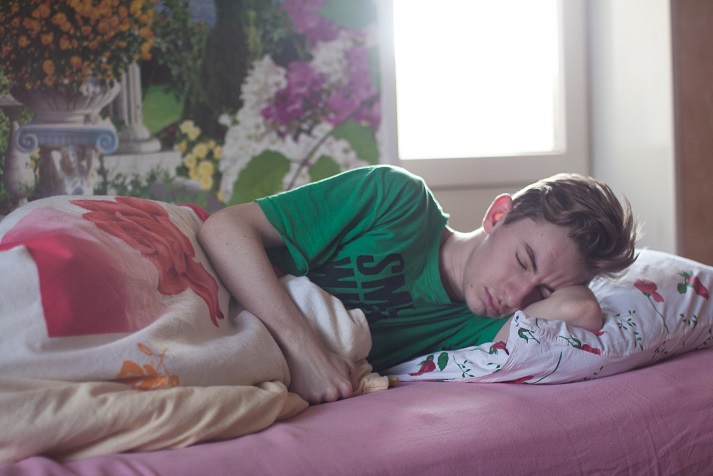Anxious people have more distressing dreams than their healthy peers, a new journal article shows.
A new study published in Dreaming suggests individuals with clinical anxiety disorders dream differently from others. Researchers suggest that they commonly have distressing dreams that can impact their lives while awake.
“The results of our study reveal that the dream contents of anxiety patients differ significantly from the dream contents of healthy persons and contain more negative and unpleasant elements,” explains lead author and psychologist Anton Rimsh of Universität Düsseldorf in Germany.
The team analyzed the dream content of 38 anxiety patients using diaries, questionnaires, and one-on-one dream analysis. Those who suffer from anxiety disorders have many similar themes appear in their dreams, including: “Being chased and pursued; Being physically attacked and facing aggressive actions; Being frozen with fright; Quarrels and verbally aggressive interactions; Anxiety and fear about aggressive actions from others; Fear of falling and being in danger of falling; Being excluded and being rejected in social situations; Death of parents and family members; Accidents and car or plane crashes; Facing failures and being unsuccessful,” the reported.

There were also common defining features found in many of their dreams, including:
“Previous love interests. Dreamers’ ex-partners or ex-spouses were also more frequent in the dream contents of anxiety disordered individuals than in dreams of healthy people;
High speed and power. Dreams of anxiety disordered patients were also characterized by common presence of high velocity and fast speed in general – and, subsequently, fast-moving characters, objects, and transport and vehicles;
High emotional intensity. The presence of an anxiety disorder instigates a higher overall subjective intensity of dream experiences and dream imagery. The dream contents in anxiety patients not only exist in large numbers, but also are experienced with a particularly high subjective intensity and emphasis.”
Moreover, researchers found that those with anxiety are more likely to analyze their dreams than those without it. They surmised, “Individuals suffering from anxiety disorders generally tend to be preoccupied and concerned with experiences and events from their waking life. It is this preoccupation that also takes over when it comes to their dreams.”
Rimsh also believes those with anxiety have a tendency to look at their dreams as an insightful guide to problems they experience while awake. “The obsessive interpretation of their dreams thus becomes a way to solve problems that they experience while being awake,” the article states.
Because of this, Rimsh warns that they could find themselves being stuck in negative feedback loops.
“This process may be represented as a ‘vicious circle,’ which is not so easy to break or tear,” Rimsh explains. “In order to do so, an individual requires professional and qualified help from a practicing psychotherapist.”
He added, “The best advice which I could give to a person who experiences such dreams on a regular basis is to consult with a psychologist, or better, with a practicing psychotherapist, and most preferably, with a practicing psychoanalyst. This is because they usually have the necessary experience, skills, and knowledge of working not only with anxiety disorders but also with a person’s dreams.”
Sources:
Dreams are Different for Anxious People, Says New Mental Health Research


Join the conversation!